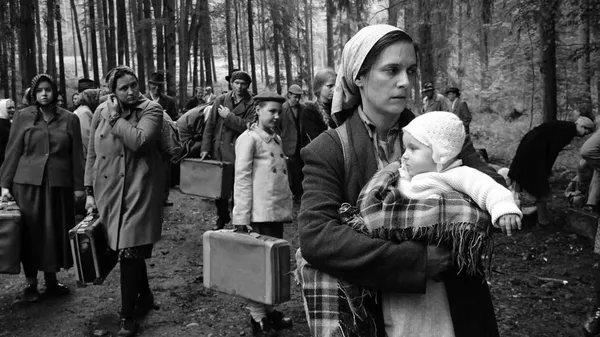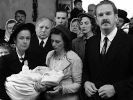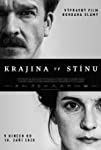Eye For Film >> Movies >> Shadow Country (2020) Film Review
Shadow Country
Reviewed by: Amber Wilkinson

The creep of division that can overcome even a generally cohesive community is exposed in Czech director Bohdan Sláma's Shadow Country, no doubt shot in black and white to emphasise the all-pervading shades of grey that are involved. The setting is the area of Vitoraszko. Once part of Bohemia, it moved while staying put, as it was declared part of Austria for 600 years before becoming part of Czechoslovakia in 1920, before, in 1938, Hitler occupied Austria, bringing upheaval again. Director Bohdan Sláma and writer Ivan Arsenyev economically set the scene for all this via intertitles that pose the question that echoes through generations in the fictional village of Schwarzwald - "Who are we and where do we belong?"
Inevitably there are no easy answers and the filmmakers draw on the real-life experiences of the residents of Tuš?, focusing on the daily and the domestic, which allows the film's considerations of division to grow from the tiniest cracks as allegiances in the town shift in increasingly horrifying directions over the next two decades. In ways that carry echoes in the divisions in many societies today, the film explores the manner in which the commonplace rough and tumble of everyday life, complete with spats and minor irritations, can be blown into dangerous territory when the right buttons are pressed. The rise of the Reich is a fringe element of the film initially, allowing Slama to show how some immediately want to nail their colours to the mast while others find themselves having to pick a side whether they care for either or not. Again, the unpleasantness of the Reich is passed through the prism of everyday life - from painting the walls to stitching swastikas onto flags.

It's not just the community that finds itself at odds with each other over Nazi flags, tensions are pulling at the fabric of family life, so that Czech Marie Veberová (Magdaléna Borová) finds herself increasingly at odds with her German husband Karel (Stanislav Majer), who is much keener on the new order than she is. This "mixed" marriage is typical of this border settlement, where Czechs, Germans, Christians and Jews have rubbed along for centuries, so that Czech Josef Pachl (Csongor Kassai), who who has a Jewish wife, finds himself on the wrong end of a tar and feather episode that will cast a long shadow for years to come.
Divis Marek's flowing camerawork, masterfully pulls the film together, as the action is allowed to flow across its large ensemble cast, tracking one character or gracefully alighting on another as the farm animals that are also an ever-present go about their business.
All the elements you would expect are here, from resistance to post-war vengeance, with Sláma constantly reminding us of the small acts that can have big implications. While some who embrace the idea of power are more obviously unpleasant, ideas of good and bad, innocence and guilt are shown to be highly fluid when getting hitched to the wrong wagon can happen so easily. The idea of collaboration at its most sickly is embodied by the "village idiot" Zwettler (Jiri Cerny), who we see rise to increasing prominence by carefully choosing to back the right horse at the right time.
Although this is an, inevitably, bleak film in many respects, recalling Michael Haneke's The White Ribbon in showing just how far man's inhumanity to man go sink so quickly, there are also small acts of contrition here. And there's no doubting the film's feminist leanings, as it shows that women, on the whole, are much more alive to the problems of choosing a side and the need for reconciliation than men. Despite the film's epic sweep, it remains sure-footed, guiding us not only through a dark chapter of Czech history but reminding us that, while these sort of terrible occurrences are nothing new, they are far from being confined to the history books either.
Reviewed on: 23 Oct 2020
















